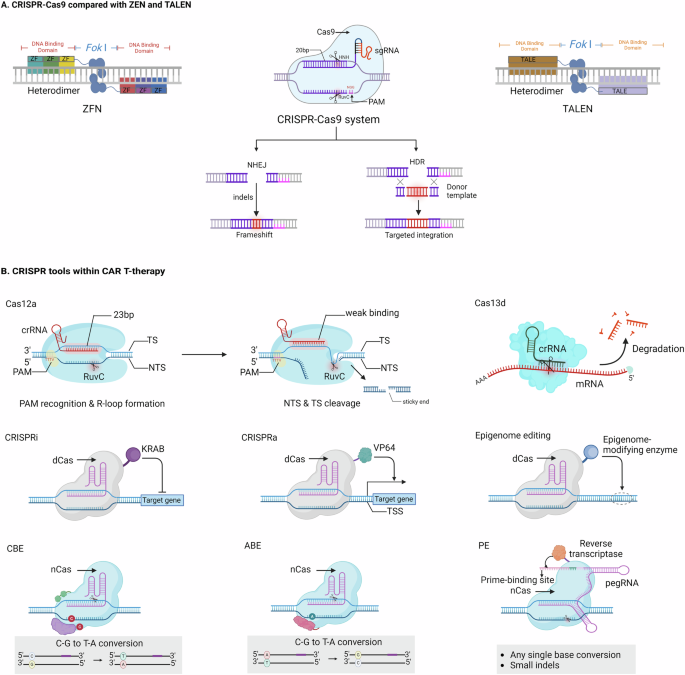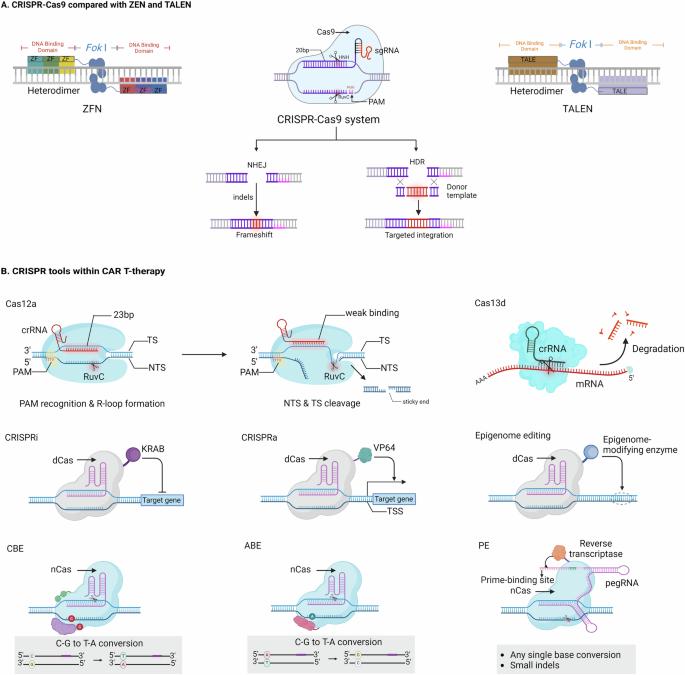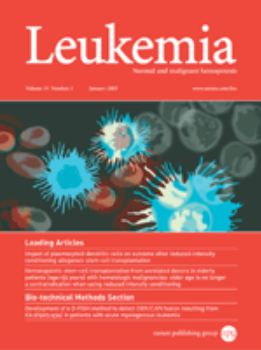利用 CRISPR 基因编辑技术优化 CAR T 细胞疗法的疗效、安全性和可及性
IF 12.8
1区 医学
Q1 HEMATOLOGY
引用次数: 0
摘要
嵌合抗原受体(CAR)-T 细胞疗法彻底改变了癌症免疫疗法。然而,提高疗效、减少不良反应和增加可及性等挑战依然存在。使用簇状正则间隔短回文重复序列(CRISPR)技术可有效实现精确整合、多基因编辑和全基因组功能调控等多种功能。此外,利用大规模向导 RNA(gRNA)遗传扰动进行 CRISPR 筛选为了解 CAR T 细胞抗癌功效的内在机制提供了一种无偏见的方法。几种新兴的 CRISPR 工具具有高特异性、可控性和高效性,可用于改造 CAR T 细胞和鉴定新靶点。在这篇综述中,我们总结了 CRISPR 系统在改善 CAR T 细胞疗法效果方面的潜在用途,包括优化疗效和安全性以及开发通用 CAR T 细胞。我们讨论了 CRISPR 基因编辑面临的挑战,并提出了解决方案,强调了 CAR T 细胞疗法的未来研究方向。本文章由计算机程序翻译,如有差异,请以英文原文为准。


Leveraging CRISPR gene editing technology to optimize the efficacy, safety and accessibility of CAR T-cell therapy
Chimeric Antigen Receptor (CAR)-T-cell therapy has revolutionized cancer immune therapy. However, challenges remain including increasing efficacy, reducing adverse events and increasing accessibility. Use of Clustered Regularly Interspaced Short Palindromic Repeats (CRISPR) technology can effectively perform various functions such as precise integration, multi-gene editing, and genome-wide functional regulation. Additionally, CRISPR screening using large-scale guide RNA (gRNA) genetic perturbation provides an unbiased approach to understanding mechanisms underlying anti-cancer efficacy of CAR T-cells. Several emerging CRISPR tools with high specificity, controllability and efficiency are useful to modify CAR T-cells and identify new targets. In this review we summarize potential uses of the CRISPR system to improve results of CAR T-cells therapy including optimizing efficacy and safety and, developing universal CAR T-cells. We discuss challenges facing CRISPR gene editing and propose solutions highlighting future research directions in CAR T-cell therapy.
求助全文
通过发布文献求助,成功后即可免费获取论文全文。
去求助
来源期刊

Leukemia
医学-血液学
CiteScore
18.10
自引率
3.50%
发文量
270
审稿时长
3-6 weeks
期刊介绍:
Title: Leukemia
Journal Overview:
Publishes high-quality, peer-reviewed research
Covers all aspects of research and treatment of leukemia and allied diseases
Includes studies of normal hemopoiesis due to comparative relevance
Topics of Interest:
Oncogenes
Growth factors
Stem cells
Leukemia genomics
Cell cycle
Signal transduction
Molecular targets for therapy
And more
Content Types:
Original research articles
Reviews
Letters
Correspondence
Comments elaborating on significant advances and covering topical issues
 求助内容:
求助内容: 应助结果提醒方式:
应助结果提醒方式:


